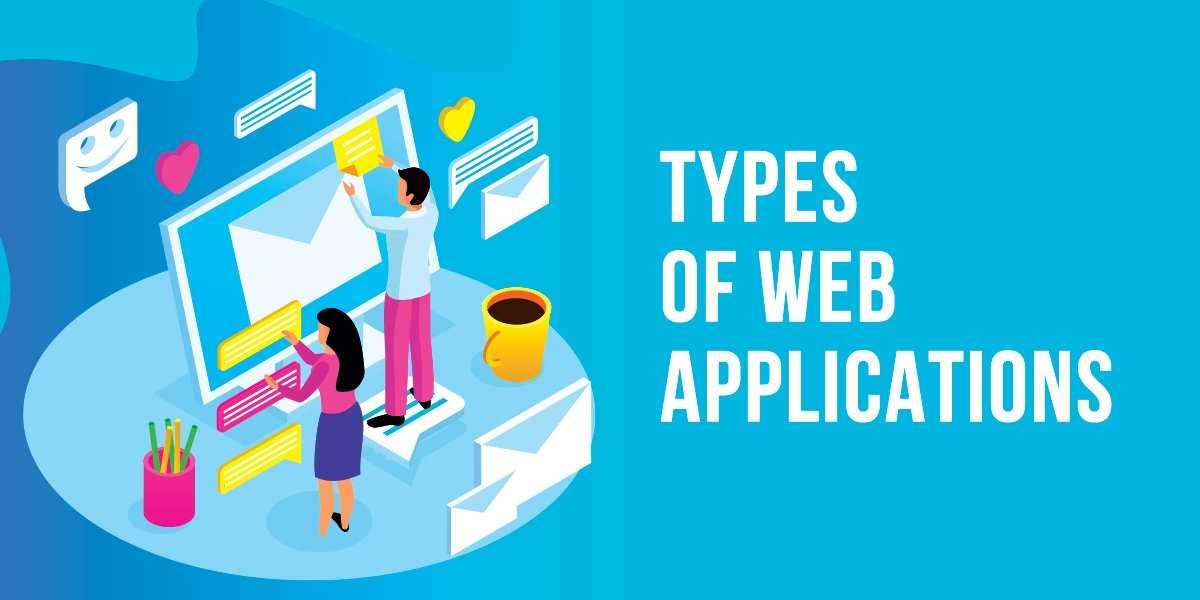Types of Web Apps and What They Mean to You
In the world of software, there are different kinds of programs that have different functions and methods of operation. In the digital world, this becomes even more specific and detailed. There are many subcategories in software types. In the realm of web apps, there are many subcategories as well. These web apps are essentially online programs that you can access and use from any internet-connected device. From an accounting program to an EHR (electronic health record) system, you can find a variety of web apps in almost every industry. With so many different types of web apps out there, it’t easy to know which one is right for your business or organization. Keep reading to learn about the six main types of web apps and what they mean to you.
What Is a Web App?
A web app is a computer program that runs on a server and allows users to access it via the internet. It’s also sometimes known as an online application, software as a service (SaaS), or a cloud app. Essentially, a web app consists of a piece of software that you can access and use via a browser. Because they are accessible via the internet, they are not only accessible to people who have the app installed but to anyone who can log into the app via a browser. Many web apps function as SaaS, which means they have their own server and database. These can be hosted in the cloud, which means they’re on a server that isn’t owned by the company using the app. As a result, users can simply log on to the app through a browser and don’t need to install anything on their computer or device.
E-Commerce Apps
E-commerce apps connect you to your customers and help you sell products, services, and digital content online. You can use these apps to set up an online store, manage inventory, track orders, and process payments. E-commerce apps allow businesses to sell their products and services online. You can use these apps to set up an online store, manage inventory, track orders, and process payments. E-commerce apps can be used for a wide variety of businesses. You can also integrate these apps with other cloud apps to expand their functionality. Some of the most common e-commerce apps include Shopify, BigCommerce, and Squarespace Commerce.
Accounting Apps
Accounting apps manage your finances, record transactions, calculate figures, and generate reports. They allow you to track your expenses and earnings, keep track of your budget, and stay on top of your numbers. Accounting apps allow you to manage your finances and record transactions. They also allow you to track your expenses and earnings, keep track of your budget, and stay on top of your numbers. Accounting apps can be used by anyone who needs to keep track of their finances, including employees and freelancers who need to submit regular reports to their clients. Accounting apps are also very useful for small businesses, nonprofits, and other organizations with regular financial transactions. Accounting apps are usually cloud-based, so you can access them online or on any device with an internet connection. Some of the most popular accounting apps include QuickBooks, FreshBooks, and Xero.
Cloud Storage Apps
Cloud storage apps store your data in the cloud. They allow you to upload and manage your files from any device. Cloud storage apps are a very useful type of web app for small business owners, freelancers, and entrepreneurs. Cloud storage apps allow you to store your data in the cloud, which means you can access your files from any device with an internet connection. Cloud storage apps are ideal for small business owners, freelancers, and entrepreneurs who need to store their data in the cloud. With the right cloud storage app, you can store everything from client information to photos for your business. Cloud storage apps are often free or very inexpensive. You can also find cloud storage apps that come with added features, such as encryption and collaboration tools. Some of the most popular cloud storage apps include Dropbox, Google Drive, and OneDrive.
Collaboration Apps
Collaboration apps help you communicate, share information, and work with others in real time. These apps can be used for team projects, managing remote employees, and more. Collaboration apps are a great way to organize yourself and your team. Most businesses rely on virtual teams to get work done. Collaboration apps help you communicate, share information, and work with others in real time. These apps GBWhatsapp can be used for team projects, managing remote employees, and more. Collaboration apps are a great way to organize yourself and your team. They allow you to set up virtual workspaces where you can share information and discuss projects with your team members. You can also use collaboration apps to set up online meetings and video calls. Some of the most popular collaboration apps include Google Docs, Slack, Zoom, and Skype for Business.
HR and Payroll Apps
HR and payroll apps help you hire employees and manage your team. They allow you to track things like attendance, schedules, and benefits. HR and payroll apps are essential for businesses that have employees. These apps allow you to hire employees and manage your team. They allow you to track things like attendance, schedules, and benefits. HR and payroll apps are essential for businesses that have employees. They allow you to hire employees, track their time and attendance, and manage their benefits. HR and payroll apps are also easy to use and user-friendly, making them a great choice for small business owners. You can also find integrated HR and payroll apps that connect with other web apps, making them even more useful. Some of the most popular HR and payroll apps include Wrike, Zoho People, and Zoom Focus.
Healthcare and Fitness Apps
Healthcare and fitness apps help you track your diet, fitness routine, medication, and other aspects of your health. You can also use these apps to communicate with doctors and specialists. Healthcare and fitness apps help you track your diet, fitness routine, medication, and other aspects of your health. You can also use these apps to communicate with doctors and specialists. Healthcare and fitness apps are a growing subcategory of web apps. They allow you to track your health and fitness and stay on top of any conditions you may have. This can be especially helpful for people with chronic illnesses. With these apps, you can track your symptoms and monitor your medication. You can also use healthcare and fitness apps to communicate with your doctor. Some of the most popular healthcare and fitness apps include Apple Health, Doctor for iPhone, and Fitfor.
Conclusion
Web apps are basically online programs that you can access and use from any internet-connected device. From an accounting program to an EHR system, you can find a variety of web apps in almost every industry. With so many different types of web apps out there, it’s easy to know which one is right for your business or organization.
sammer sohu
1 Blog posts

![VeeloSlim Deutschland (DE, AT & CH) Bewertungen [Aktualisiert 2024], Kosten, Offizielle Website und wie bestelle ich](https://f002.backblazeb2.com/file/yoosocial/upload/photos/2024/10/EZVAHa6kkwnj46oVc27D_14_58bac8ee4f79fdf38715355dd8b968e6_image.jpg)







